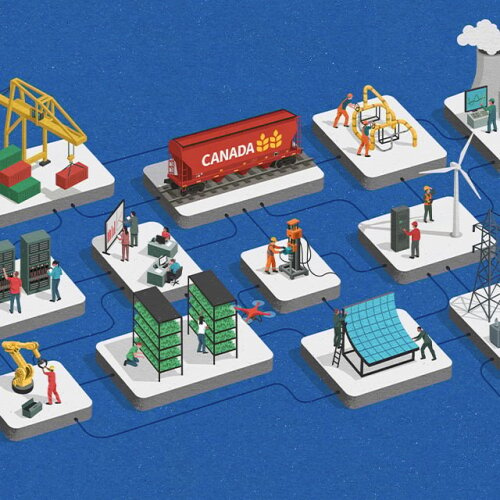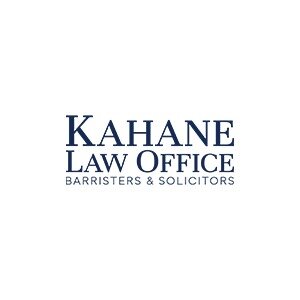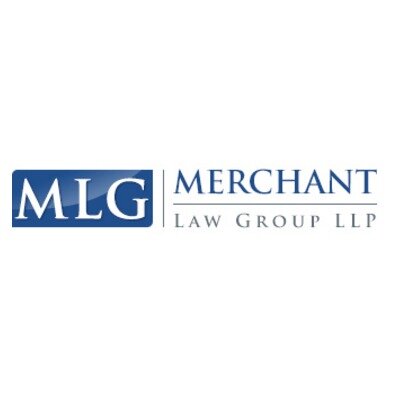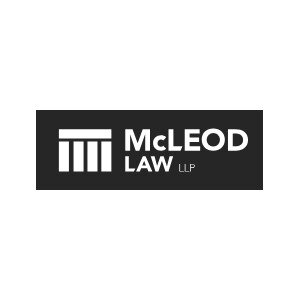Best Energy, Environment & ESG Lawyers in Calgary
Share your needs with us, get contacted by law firms.
Free. Takes 2 min.
List of the best lawyers in Calgary, Canada
About Energy, Environment & ESG Law in Calgary, Canada
Calgary, Alberta, is known as the hub of Canada's energy sector, with a significant concentration of oil and gas companies, renewable energy projects, and related service providers. Energy, Environment & ESG (Environmental, Social, and Governance) law in Calgary focuses on the legal frameworks that govern how businesses produce, distribute, and manage energy while addressing environmental impacts and meeting the evolving expectations for responsible, sustainable practices. These laws shape the conduct of companies and influence how they interact with their stakeholders, regulators, and the broader community. With increasing focus on climate change, resource management, and global ESG standards, compliance has become both more complex and more critical for organizations operating in Calgary and Alberta.
Why You May Need a Lawyer
Legal advice is essential for navigating the complexities of Energy, Environment & ESG regulations in Calgary. Common situations requiring legal help in this field include:
- Securing approvals and permits for new energy projects, including oil, gas, and renewable ventures
- Understanding and complying with environmental assessments and regulations
- Dealing with contaminated sites, spill response, and liability concerns
- Structuring investments and transactions with ESG considerations in mind
- Navigating Indigenous consultation and land use agreements
- Managing disputes related to energy contracts or environmental incidents
- Understanding reporting and disclosure obligations under securities and corporate law
- Developing internal policies to meet ESG best practices and stakeholder expectations
A knowledgeable lawyer can help you interpret legal requirements, interact with government regulators, resolve disputes or contentious issues, and develop proactive strategies to manage compliance and reputation.
Local Laws Overview
Energy and environmental laws in Calgary are shaped primarily by federal and provincial legislation, with some municipal bylaws also influencing local requirements. Key aspects include:
- Alberta Energy Regulator (AER): Oversees oil, gas, coal, and pipeline activities, including safety, environmental impact, and resource conservation.
- Environmental Protection and Enhancement Act (EPEA): Alberta's main environmental law, governing pollution control, environmental assessments, and remediation.
- Climate Change Legislation: Alberta has greenhouse gas emission rules and participates in federal climate programs, influencing project approvals and ongoing operations.
- Federal Regulations: The Impact Assessment Act and Canadian Environmental Protection Act impose additional requirements, especially for projects with significant environmental impact.
- Municipal Bylaws: City of Calgary rules may apply to local development, land use, waste management, noise, and water stewardship.
- ESG Disclosure Requirements: Public companies must comply with stock exchange and securities regulator requirements related to sustainability and governance disclosures.
- Indigenous Consultation: Both federal and provincial governments have a duty to consult and, where appropriate, accommodate Indigenous communities on projects that affect their rights and lands.
These laws change frequently and can be highly specific, making professional guidance invaluable when planning or operating energy or environmentally significant activities.
Frequently Asked Questions
What is ESG, and why does it matter for Calgary businesses?
ESG stands for Environmental, Social, and Governance. It refers to standards and practices that companies adopt to minimize environmental impact, operate ethically, and be well governed. For Calgary businesses, especially those in energy, strong ESG performance is increasingly necessary to access capital, comply with regulations, and maintain a positive public reputation.
What kinds of energy projects need legal permits or approvals in Calgary?
Most oil, gas, and renewable energy projects require a variety of permits and regulatory approvals before construction and operation. This includes environmental impact assessments, facility licenses, emissions approvals, and sometimes municipal development permits. Compliance with both provincial and federal laws may be necessary.
How are Indigenous rights considered in energy and environmental matters?
Under Canadian law, governments have a duty to consult and, where appropriate, accommodate Indigenous communities when projects may impact their rights or lands. Failure to adequately consult can delay or halt projects. Legal counsel can help ensure that consultation processes meet all legal obligations.
What should I do if my company is accused of an environmental violation?
If facing an environmental complaint or enforcement action, it is important to seek legal advice right away. A lawyer can help you respond appropriately to regulators, investigate the complaint, prepare for hearings, and negotiate any penalties or remediation measures.
Are there incentives for renewable energy development in Calgary?
Various federal and provincial programs offer incentives for renewable energy projects. These can include grants, tax credits, or other financial supports. These programs change over time, so it is important to consult up-to-date sources or a lawyer knowledgeable in this area.
How do ESG requirements impact private companies?
While public companies face stricter reporting obligations, private companies are also under increasing pressure from investors, lenders, partners, and customers to demonstrate strong ESG performance. This can influence access to financing, contract opportunities, and overall business reputation.
What are the risks of non-compliance with environmental laws in Alberta?
Risks include fines, cleanup or remediation orders, loss of licenses, project shutdowns, and potential civil lawsuits or criminal charges. Non-compliance can also harm a company’s financial performance and reputation.
How does climate change regulation affect energy projects in Calgary?
Climate change legislation, such as carbon pricing and emissions caps, introduces new requirements for facilities and operations. Projects must often demonstrate how they will minimize or offset greenhouse gas emissions, both to receive approvals and maintain social license to operate.
What role do municipal bylaws play in energy or environmental compliance?
Municipal bylaws can impact where and how energy facilities are built or operated, address noise or waste management, and establish other local requirements. These operate alongside provincial and federal regulations.
Can ESG compliance reduce legal liability?
Yes. Implementing robust ESG policies can reduce the risk of legal issues by promoting proactive compliance with relevant laws and fostering best practices that prevent environmental damage or governance failures.
Additional Resources
If you need more information or support, the following organizations can help:
- Alberta Energy Regulator (AER)
- Alberta Environment and Protected Areas
- Canadian Securities Administrators for ESG disclosure standards
- City of Calgary Environmental and Climate Resilience office
- Indigenous Relations Branch, Government of Alberta
- Federation of Canadian Municipalities - climate and sustainability programs
- Natural Resources Canada
- Environmental Law Centre (Alberta)
- Calgary Chamber of Commerce - sustainability and ESG initiatives
Each of these bodies provides guidance, resources, or regulatory oversight in their respective areas.
Next Steps
If you need legal advice or assistance in Energy, Environment & ESG matters in Calgary, consider taking the following actions:
- Identify the specific issue or challenge you are facing, such as project approvals, regulatory compliance, dispute resolution, or ESG policy development.
- Gather relevant documents, correspondence, permits, or notices that relate to your matter.
- Reach out to a qualified lawyer or law firm that specializes in energy, environmental, or ESG law. Look for professionals with experience in Alberta’s legal landscape.
- Schedule a consultation to discuss your needs, possible risks, and legal options. Be prepared to ask questions and provide background information.
- Consider ongoing legal support for complex projects or ongoing compliance rather than waiting for issues to arise.
Expert legal advice can protect your interests, clarify your obligations, and help you achieve successful outcomes in this dynamic and important field.
Lawzana helps you find the best lawyers and law firms in Calgary through a curated and pre-screened list of qualified legal professionals. Our platform offers rankings and detailed profiles of attorneys and law firms, allowing you to compare based on practice areas, including Energy, Environment & ESG, experience, and client feedback.
Each profile includes a description of the firm's areas of practice, client reviews, team members and partners, year of establishment, spoken languages, office locations, contact information, social media presence, and any published articles or resources. Most firms on our platform speak English and are experienced in both local and international legal matters.
Get a quote from top-rated law firms in Calgary, Canada — quickly, securely, and without unnecessary hassle.
Disclaimer:
The information provided on this page is for general informational purposes only and does not constitute legal advice. While we strive to ensure the accuracy and relevance of the content, legal information may change over time, and interpretations of the law can vary. You should always consult with a qualified legal professional for advice specific to your situation.
We disclaim all liability for actions taken or not taken based on the content of this page. If you believe any information is incorrect or outdated, please contact us, and we will review and update it where appropriate.
Browse energy, environment & esg law firms by service in Calgary, Canada
Calgary, Canada Attorneys in related practice areas.
















